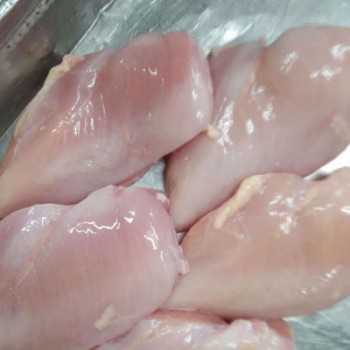Navigating the Frozen Meat Market
The global market for frozen meats is vast and complex, requiring careful consideration when selecting suppliers. Understanding the nuances of quality control, certifications, and logistical capabilities is crucial for businesses looking to source frozen meat products. Importers and Frozen chicken exporter distributors need partners who can guarantee consistent quality and timely delivery. This involves a deep understanding of international trade regulations and food safety standards, ensuring that every shipment meets the required specifications.

Factors to Consider When Choosing a Supplier
Selecting the right supplier involves several key factors. Firstly, assess their production capacity and quality control measures. A reliable supplier will have robust systems in place to ensure product consistency and safety. Secondly, consider their certifications and compliance with international standards such as ISO or HACCP. These certifications Frozen pork supplier demonstrate a commitment to quality and food safety. Finally, evaluate their logistical capabilities and ability to handle shipments to your specific location. A with a strong logistical network can ensure timely delivery and minimize the risk of spoilage.
The Importance of Traceability
Traceability is paramount in the frozen meat industry. Consumers are increasingly concerned about the origin and processing of their food. A reputable supplier will have systems in place to track products from farm to table, providing transparency and accountability. This includes detailed records of sourcing, processing, and packaging, allowing for quick identification and resolution of any issues. Traceability not only builds consumer trust but also helps to ensure food safety and compliance with regulations.
Understanding Quality Control Procedures
Rigorous quality control procedures are essential for maintaining the integrity of frozen meat products. Suppliers should implement comprehensive testing protocols at every stage of the production process, from raw material sourcing to final packaging. This includes testing for contaminants, pathogens, and other quality indicators. Regular audits and inspections are also crucial to ensure compliance with food safety standards. A committed to quality will invest in state-of-the-art testing equipment and employ highly trained quality control personnel.
The Role of Certifications
Certifications play a vital role in assuring the quality and safety of frozen meat products. Look for suppliers who hold certifications such as ISO 22000, BRC, or IFS. These certifications demonstrate that the supplier has implemented a robust food safety management system and adheres to internationally recognized standards. Additionally, certifications related to animal welfare and sustainable practices can provide further assurance of responsible sourcing. Certifications provide an independent verification of a supplier's commitment to quality and ethical practices.
Logistical Considerations for Frozen Meat Shipments
Shipping frozen meat products requires careful planning and execution. Maintaining the correct temperature throughout the supply chain is critical to prevent spoilage and ensure product safety. Suppliers should utilize refrigerated containers and monitor temperature levels during transit. Proper packaging and labeling are also essential to comply with regulations and facilitate efficient handling. A supplier with experience in handling international shipments will be familiar with the specific requirements of different countries and can navigate customs procedures effectively. Efficient logistics are vital for preserving the quality of frozen meats.
Building Long-Term Relationships
Establishing long-term relationships with reliable suppliers is essential for businesses seeking to source frozen meat products consistently. This involves open communication, mutual trust, and a shared commitment to quality and sustainability. Regular meetings and site visits can help to foster a strong working relationship and address any issues promptly. A collaborative approach can also lead to innovation and continuous improvement in product quality and supply chain efficiency. By investing in long-term partnerships, businesses can secure a stable supply of high-quality frozen meats.
Conclusion
In conclusion, securing a reliable supply of frozen meat products requires careful consideration and due diligence. From understanding the nuances of quality control and traceability to evaluating logistical capabilities and certifications, businesses must navigate a complex landscape to identify the right partners. A commitment to building long-term relationships, based on trust and shared values, is essential for success. By prioritizing quality, safety, and sustainability, and by focusing on open communication and collaboration, businesses can ensure a consistent supply of premium frozen meats, meeting the evolving demands of the global market and inspiring confidence in consumers worldwide.